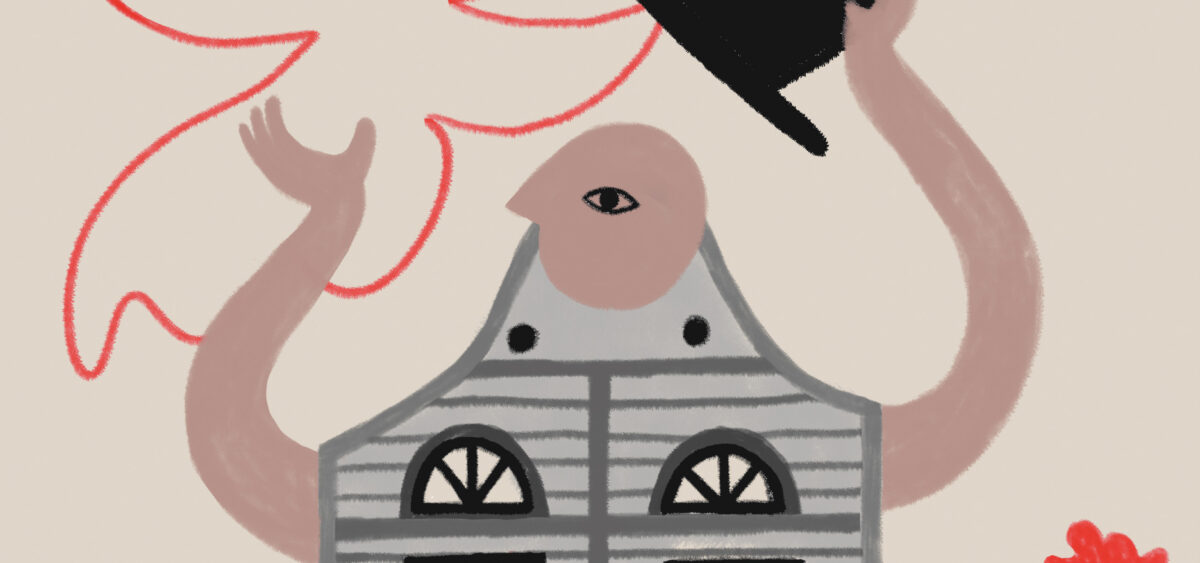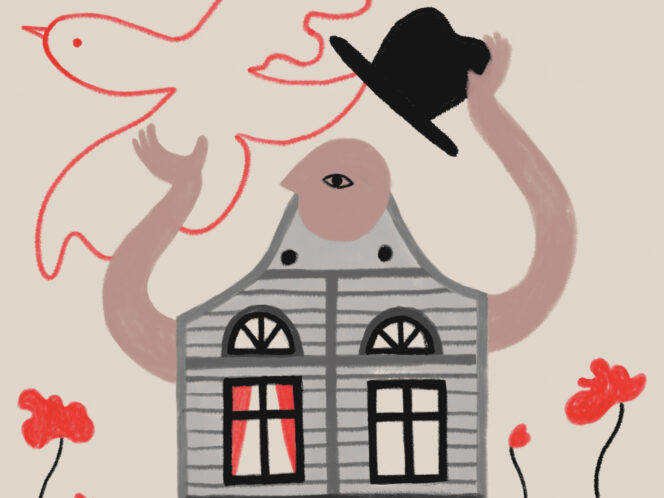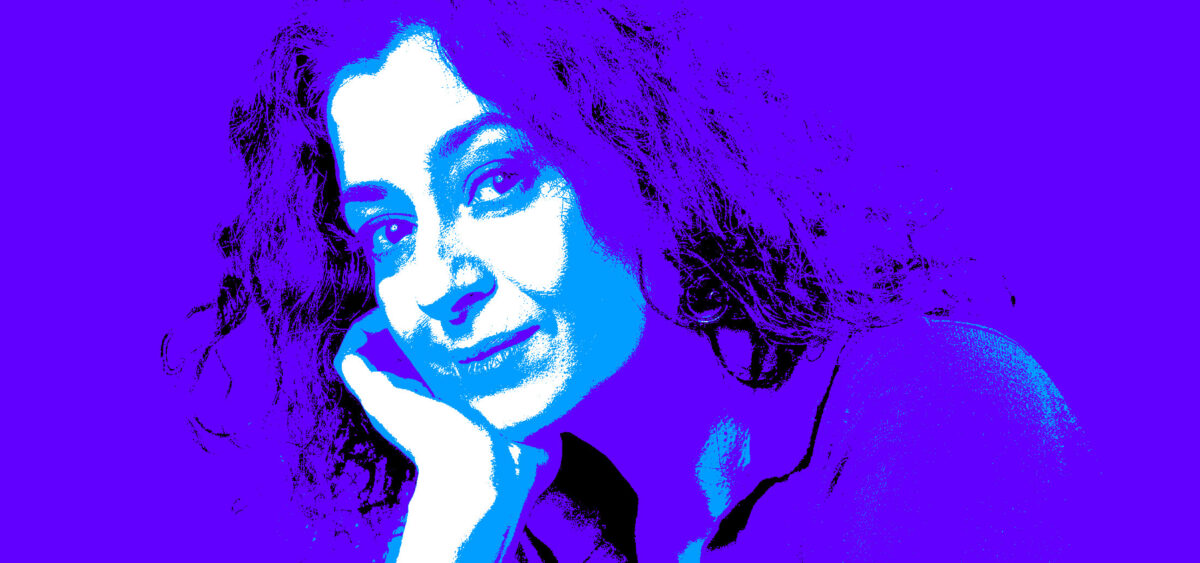
It might have no walls, yet buzzes with life. Or the other way round, protecting its lethargic innards with a solid exterior. How do the poorest of the poor live their lives? And how does one go through life without having a place to call one’s own?
He is tiny and naked, only learning to crawl. His hands pressed to the path, paved with brownish tiles. Right behind the two palms come shuffling his tiny knees and thighs, their skin the hue of dark honey. A flash of pale soles. A metal bracelet glistens in the sun, pushed on the boy’s ankle as the Hindu custom has it. Wobbly and unsure, the boy keeps getting closer to his destination several feet away: a crushed plastic bottle lying right there on the kerb. In a few moments, it will become a toy. The only entertainment available, the only object whatsoever the child can grab and push into his mouth. The boy sits. He’s trying to gnaw on the bottom of the bottle, but it’s too thick and won’t fit inside his tiny mouth, so he moves it, turning the new toy around, and swallows the narrow bottleneck instead. He chews on it a little with toothless gums, momentarily rapt with this new experience. Around him, unforgiving Mumbai roars on.
Over 20 million people live in this city, and everyone is responsible for their survival. Children are no exception. We have grown to believe that cities are friendlier and safer for human beings than the vast expanse of wild nature. But there are also metropolises like this one: predatory, always hungry, on a neverending hunt for resources, money, people. In such a crowd, no tragedy gets to grow big enough to make anyone care. There is too much suffering, too much poverty and anguish going around – and still, there is so much victory over the hopeless circumstances. People still manage to get by somehow, making the impossible happen day in, day out. They don’t despair, nor do they celebrate. Millions of catastrophes dangle right there above their heads, never falling on them. Perhaps this is why nobody seems surprised or distraught by the sight of a little boy chewing on a plastic bottle. I seem to be the only person looking at him at all.
The constant uproar of traffic and hot clouds of exhaust fumes, coughed up by old oil-fuelled engines, drown out even the loudest cries and pleas. The indifferently fast gait of chappal-clad feet is motivated by routine and experience. This massive urban body is a mega-home, not worried about the people it has already swallowed, keeping them inside its gut. It feeds them with leftovers








